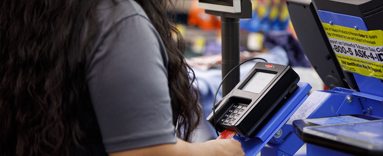The old saying goes “you can’t take it with you,” but that leaves the question: What happens to the bank accounts that you leave behind? While the departed aren’t concerned, their heirs are affected by how the deceased set up their bank accounts.
What happens if the sole owner of an account dies?
If someone is the sole owner of a bank account, what happens next depends on a few factors.
Many banks allow their customers to name a beneficiary or set the account as Payable on Death (POD) or Transferable on Death (TOD) to another person. If the account holder established someone as a beneficiary or POD, the bank will release the funds to the named person once it learns of the account holder’s death. After that, the financial institution typically closes the account.
If the owner of the account didn’t name a beneficiary or a POD, the process can get more complicated. The executor, or person who administers a person’s estate when he or she dies, will become responsible for using the money to repay creditors and dividing the remaining funds according to the deceased’s will.
What happens to joint accounts when someone dies?
Most joint bank accounts include automatic rights of survivorship. In short, if one of the signers on the account passes away, the remaining signer (or signers) on the account retain ownership of the money in the account. That means that the surviving account owner can continue using the account, and the money in it, without any interruptions.
It’s worth noting that the death of an account holder can impact the insurance on an account. The Federal Deposit Insurance Corp. will continue to insure an account as if the decedent is alive for six months after his or her death. Once that time passes, the FDIC coverage stops. Joint accounts can receive up to $500,000 in protection; however, that amount will revert to the $250,000 in protection applicable to individual accounts if one of the joint account holders dies.
Still, if you’re a signer on a joint account, it’s worth checking with your bank to make sure that the account has automatic rights of survivorship. Some banks will freeze joint accounts if one of the signers dies, which could be a problem if you rely on the account for regular spending.
What happens to a bank account when someone dies without a will?
If someone dies without a will, the money in his or her bank account will still pass to the named beneficiary or POD for the account. If someone dies without a will and without naming a beneficiary or POD, things get more complicated.
In general, the executor of the state is responsible for handling any assets the deceased owned, including money in bank accounts. If there is no will to name an executor, the state will appoint one based on local law. The executor has to use the funds in the account to pay any of the estate’s creditors and then distributes the money according to local inheritance laws.
In most states, most or all of the money will go to the deceased’s spouse and children.
How do banks discover someone died?
Banks can discover the death of an account holder in a few ways.
Family member
One of the most common ways for a bank to discover that an account holder has died is for the family to inform the bank.
If a loved one has passed away, inform the deceased’s bank by bringing a copy of his or her death certificate, Social Security number, and any other documents provided by the court, such as letters testamentary (a court document giving someone legal power to act on behalf of a deceased person’s estate) provided to the executor.
Informing the bank lets it begin the process of distributing the deceased’s funds and closing the account.
Social Security
Often, funeral directors will take on the task of informing Social Security of a person’s death on behalf of the family. This saves the family the effort of telling Social Security about their loved one’s passing and makes sure that the heirs don’t have to deal with returning Social Security checks that shouldn’t have been issued.
If Social Security sent a payment for a month after the deceased’s death, the payment must be returned. Social Security will contact the bank that received the payment to ask for the return of funds. If the bank didn’t already know about the account holder’s death, receiving that request will inform it that the account holder died.
How to avoid complications
The last thing that people want to think about while grieving the loss of a loved one is money. There are some proactive steps that you can take to help your loved ones avoid complications if you die.
“Always have a will drawn up by an estate attorney and set up beneficiary designations or TOD, but the easiest way to deal with bank accounts is to simply have an authorized signer on the account so they don’t have to wait,” says accountant Eric Nisall, who has recent experience with handling the accounts of a deceased loved one advises. “They can just go in and take the money or wait and remove the decedent at a later time.”
If you have power of attorney for a loved one who is in poor health, you can add a joint account holder or a TOD to their accounts in preparation for the future.
Another important thing to do is to make sure that your family knows about all of your financial accounts. With the rise of online banking, it’s much easier for accounts to get lost in the shuffle.
So, a good strategy is to consolidate your accounts as much as possible, leaving fewer accounts for your heirs to track down.
If you’re trying to find accounts left behind by a loved one, try checking your state’s unclaimed money database. Banks have to surrender unused accounts to the state after a period of time set by local law. The state then lists that unclaimed money for the original owners to find before escheating it for public use. You might be able to use these databases to find money that you or your loved one forgot about.
Bottom line
No one likes to contemplate their mortality but making basic preparations with your finances can save your loved ones from financial stress while grieving your loss. Make sure to use beneficiary and POD designations whenever possible and have a will drawn up by an attorney to outline your final wishes.
This article was originally published By TJ Porter, bankrate.com.










